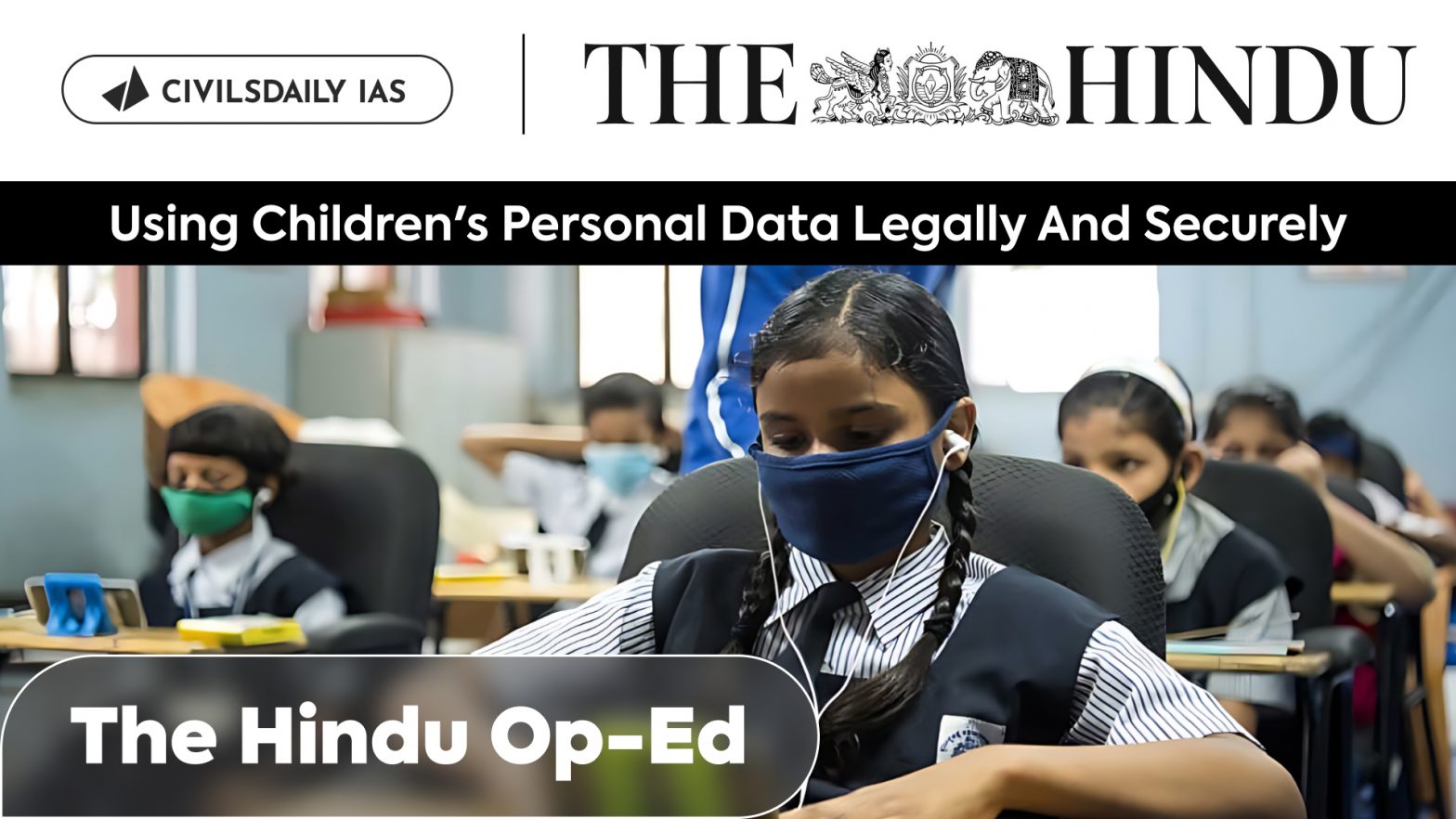| PYQ Relevance: Mains: Q1 National Education Policy 2020 is in conformity with the Sustainable Development Goal-4 (2030). It intends to restructure and reorient the education system in India. Critically examine the statement. (UPSC IAS/2020) Q2 The quality of higher education in India requires major improvement to make it internationally competitive. Do you think that the entry of foreign educational institutions would help improve the quality of technical and higher education in the country. Discuss. (UPSC IAS/2015) Prelims: Q Consider the following statements: 1. As per the Right to Education (RTE) Act, to be eligible for appointment as a teacher in a State, a person would be required to possess the minimum qualification laid down by the concerned State Council of Teacher Education. 2. As per the RTE Act, for teaching primary classes, a candidate is required to pass a Teacher Eligibility Test conducted in accordance with the National Council of Teacher Education guidelines. 3. In India, more than 90% of teacher-5 education institutions are directly under the State Governments. Which of the statements given above is/are correct? (a) 1 and 2 (b) 2 only (c) 1 and 3 (d) 3 only |
Note4Students:
Prelims: UDISE+ platform;
Mains: Purpose and Scope of UDISE+;
Mentor comments: The Indian education system is one of the largest globally, encompassing various levels from pre-primary to higher secondary. It includes approximately 1.5 million schools, 9.7 million teachers, and nearly 265 million students. The system follows a “10+2” structure, mandating ten years of schooling before higher education. While it aims to provide quality education, challenges such as disparities between urban and rural areas, rote learning emphasis, and gender inequality persist. Recent reforms, including the National Education Policy, seek to enhance access, quality, and equity in education across the country.
Let’s learn —
Why in the News?
To effectively manage India’s extensive education system, the Ministry of Education developed the Unified District Information System for Education Plus (UDISE+) platform in 2018.
Purpose and Scope of UDISE+
- UDISE+ collects real-time information from all recognized and unrecognized schools providing formal education from pre-primary to Class XII. This includes data on school infrastructure, teacher qualifications, student enrollment, and academic performance.
- The system utilizes an online DCF ( Data collection form) that simplifies data entry and ensures accuracy. Schools are required to upload their data online, which is validated through inbuilt checks.
- UDISE+ has become the official statistics system for the Ministry of Education, covering over 1.5 million schools, approximately 9.5 million teachers, and more than 260 million students. This extensive database supports effective planning and resource allocation in the education sector.
Features and Improvements
- Real-Time Updates: Since its inception, UDISE+ has transitioned from manual data entry to a digital platform, allowing for real-time updates and more efficient data management.
- Unique Identifiers: Each school is assigned a UDISE code, serving as a unique identifier that facilitates the tracking and management of educational data at a national level.
- Enhanced Data Categories: The platform includes new data categories such as pre-primary education, sports facilities, library resources, and ICT infrastructure, which were not comprehensively covered in earlier systems.
Regulatory and Compliance Considerations
- Data Sharing and Privacy: The Ministry of Education has emphasized the importance of a data-sharing policy for educational data. However, the implementation of this policy must align with the Digital Personal Data Protection (DPDP) Act, 2023, which requires clear guidelines on parental consent and the legitimate use of personal data.
- Collaboration with Ed-Tech Companies: UDISE+ data is shared with various stakeholders, including ed-tech companies and state governments, to enhance educational outcomes. This collaboration necessitates strict adherence to data protection regulations to ensure student privacy
| The three-part test established by the Supreme Court in the landmark case of Justice K.S. Puttaswamy (Retd.) v. Union of India (2018) is essential for evaluating state actions that may infringe on the right to privacy. |
Three Conditions of the Test
- Legitimate State Interest: There must be a valid and legitimate interest that justifies the restriction of the right to privacy. This means that the state must demonstrate a clear purpose for the action it is taking.
- Necessity and Proportionality: The restriction imposed must be necessary and proportionate to achieve the stated interest. This condition ensures that the means employed by the state are appropriate and not overly broad or invasive.
- Legal Basis: Any restriction on the right to privacy must be enacted through law. This emphasizes the need for a legal framework that governs the state’s actions, ensuring accountability and adherence to due process.
Need for Standard Operating Procedures
- Technical and Legal Framework: There is an urgent need for standard operating procedures that encompass both technical and legal aspects under a comprehensive governance framework. This would ensure data authenticity and clarify legal obligations for stakeholders.
- Conscientious Data Sharing: Establishing specific protocols will promote responsible sharing, usage, and retention of children’s personal data, ensuring that such actions are conducted lawfully and securely.
Conclusion: The UDISE+ platform collects extensive educational data, but its integration with Aadhaar and collaboration with ed-tech companies require clear protocols aligned with privacy laws to ensure responsible data handling and protect student rights.


